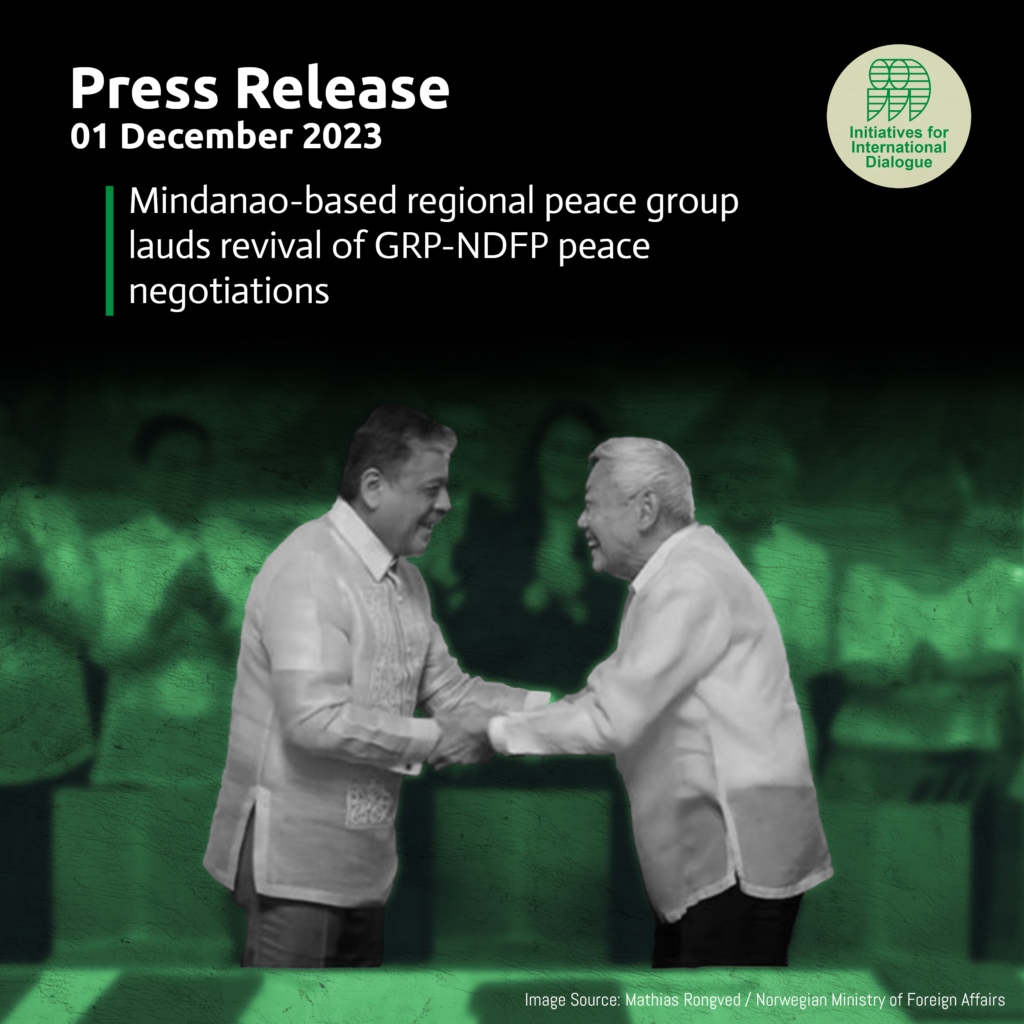
Mindanao-based and Southeast Asian peacebuilding and solidarity non-government organization Initiatives for International Dialogue (IID) today welcomed the decision of the Philippine government to resume peace negotiations with the National Democratic Front of the Philippines (NDFP), which was terminated in 2017 under the administration of then President Rodrigo Duterte.
According to a joint communique signed in Oslo, Norway on November 23: “Cognizant of the serious socioeconomic and environmental issues, the foreign security threats facing the country, the parties recognize the need to unite as a nation in order to urgently address these challenges and resolve the reasons for the armed conflict.”
The joint communique added, ”The parties agree to principled and peaceful resolution of the armed conflict”
IID executive director Gus Miclat said, “The broad civil society and peace movement who have been supporting this peace process for the longest time, appreciate and welcome this positive development. With festering armed-conflicts happening in Myanmar, Palestine and elsewhere around the world, the revival of GRP-NDFP peace talks provides a different strategy that fosters conflict transformation through negotiated political dialogue.”
Miclat added, “We laud the decision of both parties to provide this peace process a breath of fresh air. The journey towards lasting peace is not easy as there may be stumbling blocks along the way, but we hope that the decision by both parties could generate renewed energies and positivity to make this peace process successful.”
The official announcement of the revival of GRP-NDFP peace talks came after President Ferdinand Marcos, Jr. issued Proclamations 403 to 406 granting amnesty to several rebel groups, including former members of the communist movement.
Miclat said, “Since the termination of the formal talks, we have seen how some groups weaponize existing security measures to justify red-tagging and human rights violations, mostly of individuals and groups engaged in the talks. Hopefully, this renewed commitment to the peace talks of the Marcos government will provide a conducive atmosphere for genuine dialogue to thrive over other divisive agenda of parties consciously campaigning against the revival of the GRP-NDFP talks particularly the hawks and peace saboteurs.”
IID urged both parties to re-affirm the planned implementation of the substantive agenda and agreements of the peace talks that had already gained significant milestones before the official negotiations were terminated six years ago. Among them are the three (3) common drafts on general amnesty and release of all political prisoners in compliance with Comprehensive Agreement on Respect for Human Rights and International Humanitarian Law (CARHRIHL); coordinated unilateral ceasefires; and part I Agrarian Reform and Rural Development (ARRD) and part II National Industrialization and Economic Development (NIED) of the Comprehensive Agreement on Social and Economic Reforms (CASER). Also, both parties have already drafted an agreement on the coordinated ceasefires, a significant step towards the Comprehensive Agreement on the End of Hostilities and Disposition of Forces (CAEHDF).
Miclat concluded, ”Beyond honoring previous agreements and protocols, we strongly urge both parties to make the process more inclusive by officially including voices of people and communities that both parties vow to serve and fight for. If we are to engage in a serious political dialogue, the voices of conflict-affected communities, especially indigenous peoples must be significantly heard and their agenda must be front and center of the negotiating table.” ###

Recent Comments